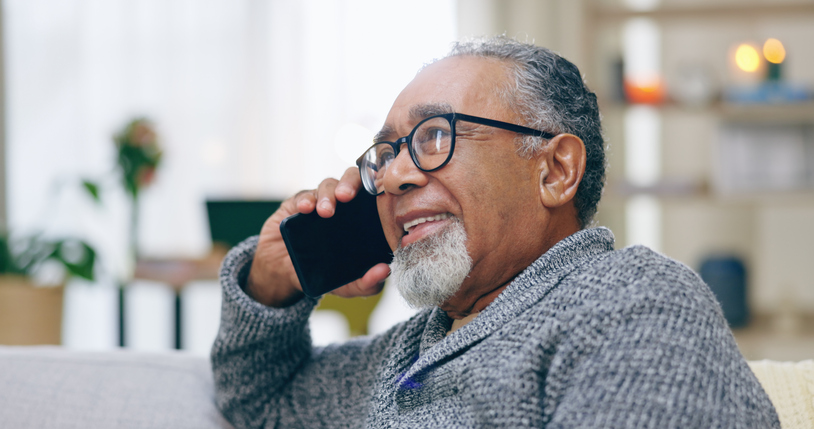Your feelings after cancer treatment
It isn’t unusual to feel quite low and lost after your treatment has ended, especially during the first few months.
After you finish your treatment
It isn’t unusual to feel quite low and lost after your treatment has ended, especially during the first few months. You may find that feelings you bottled up during treatment may hit you afterwards – sometimes months or years afterwards.
It’s normal to feel:
- Afraid of cancer coming back and worrying about every small symptom.
- Lonely without the company and support of your medical team and fellow patients.
- Stressed at having to deal with things that may have been on hold during your treatment, such as your finances, going back to work and family issues.
- Isolated or guilty if your family and friends don’t understand your feelings or expect you to get back to normal before you’re ready.
- Angry about what has happened and the effect on you and your loved ones.
- Depressed or sad.
Remember that healing your mind is also part of recovering from cancer. This may take some time.
Feeling alone
It can feel like you are on your own after treatment ends because you get less attention and support from your doctors and nurses. It’s also normal to feel cut off from other people after cancer treatment. Often, friends and family want to help, but they may not understand how you’re feeling or how best to help.
When family doesn't understand
After treatment ends, your family and friends may not be prepared for the fact that recovery takes time. They might expect you to be back to ‘normal’ much faster than you feel you can be. In fact, you may end up with a new 'normal', which is not the same as before.
It can be hard to let them know that you still need their help and support.
You may also feel guilty about what your family and friends have been through because of your illness. But you cannot let this get in the way of your needs.
What can I do to help those close to me?
The main thing to remember is that being honest with those close to you really helps. Let your family and friends know that you understand it’s hard for them too.
Tell them that you appreciate all they have already done to help you. But let them know that you still need their support. As you build your ‘new’ life with those close to you, things are likely to become easier.
Hints and tips: Expressing your feelings
- Acknowledge any strong emotions. For example, if you feel angry or very sad.
- Describe your feelings rather than simply displaying them.
- Don’t feel guilty or ‘wrong’ about the way you feel – these feelings are normal.
- It’s OK to admit that you are uncertain about the future.
- Don’t force yourself to speak when you don’t want to. You may just want to hold someone’s hand or get a hug.
- Everybody has some regrets. Regrets are reduced when they are shared.
- It’s good to cry.
Sometimes your emotions may be too strong to cope with by yourself. Nothing you do or say may seem to improve how you feel.
If your emotions prevent you from carrying out normal activities, such as eating or sleeping, or affect the quality of your life, you should ask for help. Don’t feel that your emotions are trivial or less important than your physical symptoms.
Above all, don’t feel guilty or disappointed if you have to ask for help.
Fear of the cancer coming back
It’s also natural to be afraid the cancer will come back. You might worry about every ache or pain. In time, these fears usually fade, but they may never go away completely.
What can I do to help myself?
Being well informed and knowing where to go for help and support can help you cope better with your fears.
Learn about your cancer and the possible late and long-term side-effects you may have. Read our section on side-effects after cancer treatment.
- Know what symptoms to watch out for.
- Communicate with your oncology team and know who to call if you if you have any questions about symptoms or treatment side-effects.
- Take care of your body and stay healthy.
- Go to all of your follow-up appointments.
- Try techniques to help you relax. For example, visualisation or meditation can help to reduce anxiety.
- Talk about your concerns with your friends, family, other cancer survivors or your specialist nurse, doctor or medical social worker. If you are not comfortable talking about your fears, try writing your thoughts down in a journal.
Support
Try to find other sources of support to replace the emotional support you received from your doctors and nurses:
- Your local cancer support centre can be a great way to meet other people who understand what you’re going through. They have social activities and often run classes like exercise and relaxation classes.
- Call our Support Line or visit a Daffodil Centre to talk to a cancer nurse if you need information, advice or just want to talk. You can also email us on supportline@irishcancer.ie
- We can put you in touch with a Peer Support volunteer who has had a similar cancer experience. Peer Support volunteers are fully trained to provide emotional and practical cancer support in a safe, responsible and kind way. Learn more about our Peer Support programme.
Related links



Talk to a Cancer Nurse

Support Line
Our Daffodil Centres

